


| Motlhalosi Tlotleng Doctor of Business Administration Business Administration and Finance Botswana |
Mmoloki Moreo Master of Management and Leadership Educational Management and Leadership Botswana |
Kamila De Oliveira Barros Bachelor of Science Psychology Brazil |
Hugo Patricio Muñoz Aravena Bachelor of Science Psychology Chi |
William Diaz Henao Doctor of Business Administration Business and Finance Colombia |
Burbano Rosero Adriana Rocio Bachelor of Education Preschool Education Ecuador |
| Phineas Londiya Nhlanhla Magagula Doctor of Philosop hy Business Administration Eswatini |
Janice Firebrand Johnson Master of Arts Diplomacy and World Affairs Ghana |
Bernadette Touwendsida Nikiema Master of Science Psychology Ghana |
Lilian Beatriz Hernández Guerra Doctor of Legal Studies International Legal Studies Guatemala |
Rozana Chand Bachelor of Science Project Management Guyana |
Jose Abraham Alvarez Martinez Bachelor of Business Administration Business Administration Honduras |
| Josué Daniel Crespo Elliot Bachelor of Science Industrial Engineering Honduras |
Navit Shahar Nirhod Bachelor of Arts Psychology Israel |
Yaman Jaad Msarwe Bachelor of Education Education Israel |
Terron Hewitt Bachelor of Accounting Accounting Jamaica |
Isabelle Jerop Kandagor Doctor of Philosop hy Sustainable Telecommunications Kenya |
Roxanny A. del Pilar Moulas Vargas Bachelor of Science Psychology Mexico |
| Jose Juan Ruiz Ruelas Bachelor of Science Civil Engineering Mexico |
Emmanuel Ucheoma Ojobah Bachelor of Science Psychology Nigeria |
Nwonye Emmanuel Ifebuche Doctor of Business and Economics Project Management Nigeria |
Christopher Jeremiah Abimiku Doctor of Philosop hy Business Management Nigeria |
Edem Chigozie Eucharia Doctor of Science Social and Human Development Nigeria |
Usman Kolawole Aleshinloye Doctor of Management Project Management Nigeria |
| Francis Ezike Okagu Master of Business and Economics Project Management Nigeria |
Farzin Shahrokhi Doctor of Psychology Psychology Norway |
Jesus Martin Pacheco Rivera Bachelor of Science Electromechanical Engineering Panama |
Arlito P. Cuvin Bachelor of Science Architecture Philipp ines |
Victoria Cupet Doctor of Education Education Romania |
Francio Frans Buys Doctor of Science Public Health South Africa |
| Mohammed Ajak Abdalla Arke Bachelor of Public Administration International Relations South Sudan |
Mathokoza Mntambo Bachelor of Science Computer Science Swaziland |
Kerim Çolakoğlu Bachelor of Science Mechanical Engineering Türkiye |
Selim Çolakoğlu Bachelor of Science Mechanical Engineering Türkiye |
Agnes Kabanda K Doctor of Project Management Project Management Uganda |
Mauricio Adrian Kanigina Cap Bachelor of Science Psychology Uruguay |
| Jenipher Mhlanga Bachelor of Science Psychology US A |
Atriel Arias Bachelor of Science Psychology and Human Development US A |
Erminda Eli Pacheco Caseres Bachelor of Business Administration Business Administration US A |
Fahimeh Raoufi Doctor of Science Biology US A |
Michel Peña Del Rosario Bachelor of Science Psychology US A |
Duviel Rodriguez Doctor of Philosop hy Psychology US A |
| Devan Lane Pope Doctor of Arts English Literature and Language US A |
Edson Rivera Román Bachelor of Science Architecture US A |
Rosemary N. Situmbeko Kabwe Doctor of Philosop hy Health Care Administration Zambia |
Rosemary N. Situmbeko Kabwe Doctor of Philosop hy Health Care Administration Zambia |
||

 Christopher Roger Williams
Christopher Roger Williams Christelle Katumba Shimbi
Christelle Katumba Shimbi Anu Joseph
Anu Joseph Fadi AbuAita
Fadi AbuAita
We observe every day the
relationship and development
of nations and ask
ourselves: Where are we going
as a society?
The world we know is made
up of our solar system in
which our planet Earth is. In
turn, our planet Earth is made
up of flora, fauna and human
beings; with all of us we build
our social world. We live from
what our planet produces and
in our social world we create
science. We develop science
through formal education.
What world are we in? What
do we have to learn? Where
is science going? Every day
it seems that we have new
answers. The answer to the
first question, at first glance,
seems to be simple. We are in
a world where nature is not
seen to be protected. Nature
is the source of life for flora,
fauna and the human species.
We have created an unsustainable
development:
extraction of non-renewable
products, dependence on fossil
fuels, and little care for natural
resources, such as water.
It is maintained, as in the
United Nations-UN, that
global warming can’t rise
more than 1.5 Celsius. This is
the result of the United Nations
Conference on Climate Change-Conference of the
Parties (COP21), held in Paris
on December 12, 2015, and
whose agreement was signed
by 196 countries on November
4, 2016. At this Conference,
the countries committed to
reviewing them every 5 years.
At COP26, held in Glasgow,
Scotland, UK, the same agreements
for climate change were
also met, but the same: they
aren’t complied with for one
reason or another.
In the Conference of the
Parties of the UN-COP27, held
in Egypt, in November 2022, it
deals with the same theme of
the Paris Agreement, where the
countries sign, but the changes
are offered by many, until
2050, because they say no to be
able to switch energy from oil
and coal as quickly as needed.
Let’s see now what education
is. Education has the two
known aspects: informal education
and formal education.
Informal education is the
cultural values that we learn
from coexistence. Formal education
is what States organize
based on what they want about
human being will be: it is
structured based on the needs
of nations to develop culture,
economy, and human values.
There are Open and Closed
Curricular Designs. At Atlantic
International University (AIU),
where you are studying, you
have both modalities of Curricular
Design.
In an Open Curriculum
Design, the student can choose
the disciplines that are of
interest. In a Closed Curricular
Design, the institution offers
the study plan to follow.
In the Open Curricular
Design, also in the Closed Curricular
Design the institution
chooses its Philosophy and its
Policy. Philosophy is what the
institution believes in: learning,
society, social relations
and ultimate goals of education.
Policies are the rules by
which the institution is guided in each of its departments.
Formal education can be
face-to-face, which means
attendance at facilities with
teachers who, through appropriate
resources, show students
the procedures to follow or
review the activities developed
by them. In formal education
we have psychological and
pedagogical methods that seek
better student learning.
Nowadays there is a strong
development of modalities
to learn more every day: we
are talking about virtual or
online education. In any case,
students: have to use virtual or
online media even if they are
in face-to-face education, to
carry out all the activities. Students
in face-to-face classes
also have the use of virtual or
online media as subjects.
Regarding the third question
of “Where is science
going?” what we notice is that
every human being, nowadays,
thinks he or her knows
everything. In addition, all the
falsehoods that one can imagine
are published through the
Platforms. Those who are unaware
of the existing problem
regarding the dissemination of
what is believed to be scientific
repeat falsehood and a half.
Science, nowadays, is more
popular but you have to know
where to look for reliable
information. One of the functions
of universities is the dissemination of science. It
also joins this way of working
with the truth, which
must correspond to a theory
already proven and accepted
by the international scientific
community.
Nowadays society is very
confused with what freedom is:
everyone does and says what
comes to mind, which is why
we live in chaos. We say to be
in chaos because:
a While some enjoy extreme
abundance, others die of
hunger.
b Some maintain scientifically
that it is necessary to regulate
the heat on the planet
while others deny it.
c Some want to continue
producing energy from oil
while others deny that it is a
problem of survival.
d Some want production to be
based on green energy and
others want fossil fuels such
as coal.
e Science is done with procedures,
theories and laws
agreed upon by the international
scientific community it
is not saying what you want.
f There must be respect for the
other while others are only
concerned with their benefit
regardless of what may happen
to others.
g Some have the right to education
while others barely
reach basic studies.
We ask ourselves: where are the values? Where the respect
is for the other? The theories
are still valid over time and
present elements on which you
can continue working.
Speaking of chaos, here is
the theory: Where does chaos
come from and how situations
are resolved in the face of it.
Ilya Romanovich Prigogine,
Moscow, January 25, 1917-
Brussels, May 28, 2003. He was
naturalized Belgian in 1949. He
studied Chemistry at the Free
University of Brussels, also at
the same institution he studied
Physics. He received the 1977
Nobel Prize in Chemistry for
his work on the Theory of Dissipative
Structures.
Prigogine said: “Our world
is a world of change, exchange
and innovation. To understand
it, a theory of processes,
lifetimes beginnings and ends
is necessary; we need a theory
of qualitative diversity, of the
appearance of the qualitatively
new. (Prigogine 2009, pp . 70-71).
This was said by Prigogine
working at the beginning of
this century. We know that it
has cost a lot of effort in the
field of research to introduce
the qualitative. How is it possible
to move from chaos to balance.
According to Prigogine:
“We have called the order
generated by the state of nonequilibrium
“order by fluctuations”.
Indeed, when, instead
of disappearing, a fluctuation increases within a system,
beyond the critical threshold of
stability, the system undergoes
a profound transformation, it
adopts a completely different
mode of operation, structured
in time and space, functionally
organized. What then emerges
is a process of self-organization,
what we have called “dissipative
structure”. (Prigogine,
2009, p. 89).
We go from chaos, which is
the non-equilibrium of a system,
to the search by the same
system for its equilibrium.
Nowadays society, which is
in chaos, where any thought is
true, where it doesn’t matter
what happens with the way
nature is used, where values
don’t matter, where respect for
others are not necessary: you
will find your own balance.
We don’t know how long it
will be necessary for the system
which is the current world
with education, science and the
values that the human being
has to find the balance which
will be peace to build a world
and to build in them a better
human being where life is for
growth instead of the destruction
we live.
Take advantage of your
time to build.
Take advantage of your
study time at AIU to be
and make a better world.
BIBLIOGRAPHY. ONU-Acuerdo de París COP21. París 2015
Retrieved from: https://www.un.org/es/climatechange/paris-agreement | ONU
COP21. París 2015 | Retrieved from: https://www.diplomatie.gouv.fr/es/politica-
exterior/clima-y-medio-ambiente/la-lucha-contra-el-cambio-climatico/
conferencia-de-paris-o-cop21/ | Prigogine, I. 2009. ¿Tan solo una ilusion?
Barcelona: Tusquets Editores.
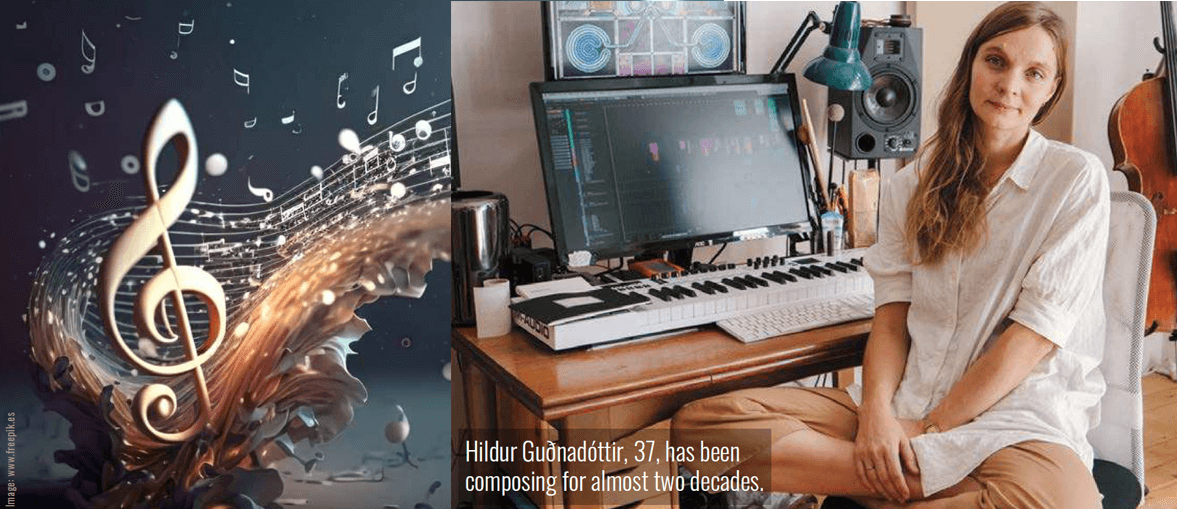
1. Introduction
Why are some sounds regarded
as ‘noise’ while others
are experienced as music? When
we perform or listen to music,
what occurs at the level of the
sound wave, the ear, and the
brain? How do musical abilities
emerge, develop, and refine as
one gains experience with music?
What gives the music such
a strong emotional impact and
the ability to influence social
behavior in so many different
cultural contexts? These are a
several of the frequent questions
that define the field of
“Music Psychology”.
In this essay, I’d want to
present a comprehensive overview
of classic and contemporary
studies in music psychology,
as well as critical critiques
of existing research. I want
to explore sound and music
on an acoustic level, describing
auditory phenomena in
terms of ear and brain function.
I’d want to focus on melody,
rhythm, and formal structure
perception and cognition, as
well as the origin and development
of musical talents, before
moving on to the most practical
components of music psychology:
gender in music, customers
behavior, the emotional power
of music. I sincerely believe that
my work may contribute to a
broader discussion of music’s
meaning in terms of its social,
emotional, philosophical, and
cultural relevance.
2. The subject of Music
Psychology
People have always chosen
specific sound patterns for
special attention all around the
world and for which we have
records. Some of these patterns
are what we refer to as ‘music.’
What distinguishes the sound
patterns that we identify as
music? What is it about these
sound patterns that has such a
profound meaning for humans?
All audible noises begin with
energy propagation into the
environment. It may be a gentle
breeze rustling a thousand fluttering
leaves, the plucking of harp strings, or the thud of a
bass drum. What makes some
air molecule dances ‘musical,’
whereas other air molecule
disturbances appear to produce
only sounds? Or is it the noise?
A symphonic orchestra concert
is a music. Music festivals
are music as well. Advertising
jingles are musical creations.
Many people consider church
bells, which ring out a basic
tune, to be music. Not every
sound, however, is music.
Could we come up with a
comparable list of noises that
everyone agrees aren’t music?
A sound pattern that is indicative
of non-music may be the
roar of a road drill or the sound
of a tractor. The bubbling of a
dishwasher or the screech of a
vacuum cleaner may strike us
as apparent examples of nonmusic.
What about the sound
of the waves crashing on the
shore? Is that a wolf howl? Or
perhaps a bird’s song?
While the extremes appear
to be well defined, there is no
obvious distinction between
music and noises that are not
music. Though we can fairly
clearly distinguish between
prototypical situations of music
and non-music, there are
many sound patterns that are
difficult to categorize as one or
the other.
Music definitions that are
all-encompassing may be difficult
to come by. Despite the hazy borders of the realm of
music, it appears that there are
auditory occurrences that we
can all agree constitute music,
and that have been agreed
upon in various cultures and
historical periods. Humans are
the ones who create and perceive
music. Performers must
master the abilities required to
produce organized sounds in
meaningful patterns. Listeners
must learn to perceive such
qualities of organized sound
patterns as music through
experience or education. A
comprehensive examination of
all of these talents, as different
as they are, is certainly needed.
The fusion of psychology and
music pave the way for such
investigations and opens up
options for research into a wide
range of themes. Newcomers
are sometimes taken aback by
the breadth and depth of this
vast discipline. The psychology
of music in the twenty-first
century is preoccupied with
several issues. It is concerned,
along with other things, with
how people perceive, respond
to, and produce music, also,
how they incorporate it into
their lives. These themes
include everything from how
the ear determines a tone’s
pitch to how music is used
to express or change moods.
Though cognitive psychology is
heavily used in this discipline,
it also draws on many other
schools of psychology, sensation
and perception, neuropsychology,
developmental
psychology, social psychology,
and practical subjects such as
classroom management are all
examples of psychology.
Not only psychologists and
musicians are drawn to music
psychology, but also scientists
and researchers from a variety
of fields. Perspectives from
acoustics, neurology, musicology,
education, philosophy,
and ethnomusicology are also
included in this collection. Musical
performance necessitates
the development of a complex
set of abilities and a developing
body of knowledge that allows
for sensitive musical interpretation.
A composition must
first be created before it can be
performed. This, too, necessitates
a complex set of abilities.
Then there’s improvisation as
a creative endeavor; Western
jazz and Indian classical movement
performances are famous
examples. Innovative music
education techniques presume
that all children are musical
and immerse young children in
creative and sensitive musical
interaction with the goal of
building the foundations for a
lifetime of musicality.
Moreover, because music is
divided into many diverse musical
cultures across the world,
an anthropological approach
that emphasizes the study of
different human civilizations
and their music is also helpful
in understanding the psychology
of music. Finding out what
is universal across all musical
cultures and what appears to
be distinctive to each one sheds
a lot of insight on psychological
issues. These investigations
aid in distinguishing between
cultural sources of musical
repertoire characteristics and
those that may arise from the
biological underpinnings of
musical perception.
3. Music and gender
The widespread categorization
of instruments and
performance genres as male or
female- appropriate has been
recorded by anthropologists
and historians. Koskoff (1995),
for example, demonstrates that
while gender stereotyping in
music took different forms in
different societies at different
eras, its consequences are
pervasive. Ideas concerning
gender-appropriate instrument
choice and manner of performance
have been particularly
prominent on occasions for
courting and ritual.
The Ga people of Ghana
have funeral rites that require
specific types of songs
to be sung solely by women.
Only women (and children) in
Afghanistan play a popular instrument
known as the ‘chang’
(a mouth harp). Steblin (1995,
p. 144), in a historical study
of musical stereotyping in
Western Europe, alludes to the
middle-class tradition of perceiving
the virginal and piano
as the most acceptable instruments
for ‘young girls’ because
they could be performed to
small groups of friends and
family within the home. Prior
to the mid-nineteenth century,
it was considered impolite for
women to perform in public,
and most orchestras refused to
recruit women (O’Neill, 1997).
By the time youngsters
take their first music lessons,
gender prejudices about music
have already emerged. Music
is typically stereotyped as a
more ‘feminine’ topic, with significantly more girls than
males taking music classes
and participating in musical
events during their school
years. Furthermore, children’s
instrument selections are
limited by what they consider
to be gender appropriate.
Many studies have consistently
shown that Western schoolage
children consider flutes,
violins, and clarinets to be appropriate
instruments for girls
to play, while drums, trumpets,
and guitars are considered to
be appropriate instruments for
boys (e.g., O’Neill & Boulton,
1996, who studied 9- to
11-year-old English children,
tho similar conclusions were
shown in young kids).
Some studies have found
that by providing instances of
gender and instrument mismatches
that conform to popular
expectations, children’s
opinions shift —however, the
impacts are minor and not
necessarily in the desired direction.
For example, Harrison
and O’Neill (2000) showed live
counter-gender-stereotyped
figures to youngsters and
found at least a modest shift
in indicated preferences for
gender-specific instrument
assignments among both girls
and boys. This strategy, on the
other hand, appears to lower
preference for instruments
considered to be gender- appropriate
in the past (For
example, after viewing a male
pianist, females expressed a
lower preference for the piano,
while boys expressed a lower
choice for the guitar after
watching a female guitarist).
Another Australian study that
employed video presentations
and counter- stereotypical
drawings discovered that girls
were more likely than boys to
experiment with non- traditional
player and instrument
combinations (Pickering and
Repacholi, 2001).
The number of female musicians
in professional bands
and orchestras is growing, and
the instruments they play are
diverse. However, this may be
more true of classical music
ensembles, whereas gender
equality in other genres, such
as jazz, has a long way to go.
McKeage (2004), for example,
revealed that in a study of over
600 students, substantially
fewer girls than men are active
in performing jazz in high
school or college. In addition,
despite the fact that 62% of
guys who played jazz in high
school continued to play in
college, just 26% of females
who played jazz in high school
did so. Female jazz musicians,
in particular, lacked confidence
in their ability to improvise.
Wehr-Flowers (2006)
discovered that girls in jazz
ensembles were significantly
less confident, nervous and
had a poorer feeling of selfefficacy
in jazz improvisation
than men, using a scale
that assesses attitudes toward
mathematics. Wehr-Flowers
says that while most studies
have not identified substantial
differences in male and female
jazz improvisation talents,
“we must therefore seek to
alternate causes for the gender
imbalance in the jazz sector”.
Females may not be socialized
to feel as comfortable as
males in participating in jazz
rituals such as showing off
one’s chops,’ and there is an
insufficient social framework
to support females because the
networks through which one
obtains informal jazz technique
training and advances one’s
career are predominantly male
(McKeage, 2004).
Music composition is one
area of music where women
are noticeably underrepresented.
According to research using
the ‘Goldberg paradigm,’ social
perception may have a part in
the tiny proportion of females
deemed to be prominent
composers in various genres of
music (Colley, North, & Hargreaves,
2003). This strategy was
first used in a famous 1968
research by Goldberg, which
found that journal publications
credited to John McKay
were rated more positively
than those ascribed to Joan
McKay in diverse domains of
competence.
Contemporary music compositions
were played to 64
undergrads who rated them
on a set of rating scales in
Colley’s study in 2005, which
extended the approach to the
musical realm.
Participants tended to
offer higher evaluations on
measures relating to musical
skill when the composers
were identified as Klaus Behne
and Simon Healy, compared
to Helena Behne and Sarah
Healy, even though the effects
were only marginally significant.
Higher ratings were
provided on various scales for
music claimed to female composers
under another scenario,
in which a brief biography was
added (that was the same for
all fake artists). ‘Where no information other than social
category is supplied, there
is more pro-male bias,’ the
scientists noted. If, on the
other hand, excellent biographies
are provided, readers
may conclude that the ladies
are especially committed and
have achieved a high degree of
success against the odds.
One hundred fifty-three
late-adolescent participants
were asked to evaluate six
works from the classical, jazz,
and new-age genres in a second
study by the same group
of researchers (North, Colley, &
Hargreaves, 2003). In this study,
(fictitious) composers’ names
and short biographical excerpts
regarding their history and
accomplishments were supplied
in all cases. The findings
diverged slightly from those
of the Colley et al. research,
with the jazz extracts providing
the most remarkable findings.
For starters, participants
definitely saw jazz composing
as a masculine occupation,
although reactions to classical
and new age music were
somewhat skewed the other
way. Second, female participants’
assessments for jazz
compositions exhibited strong
evidence of ‘pro-female prejudice,’
while male participants’
ratings revealed less striking
evidence of ‘anti- female bias.’
Furthermore, when ascribed to
a male composer, the identical
jazz tunes were evaluated as
‘softer’ and ‘warm,’ but when
assigned to a female composer,
they were perceived
as more ‘forceful,’ mirroring
preconceptions about male
and female composers. As with
many other characteristics of
musicality discussed in this
section, societal influences,
rather than sheer aptitude,
may account for discrepancies
in a degree of success and
prominence between male and
female composers.
4. Consumer behavior
in relation to music
as a social force
Kurt Lewin, a pioneering
social psychologist, stated
years ago that one’s social circumstances
have a significant
effect on directing conduct.
Though, as previously said,
this viewpoint has shifted in
recent years, there are compelling
claims that music has such
a function. These ideas may
be traced all the way back to
Plato, who claimed that different
musical modes might cause
different forms of conduct.
Empirical evidence suggests
that music may have a significant
influence on conduct and
that, unlike more explicit types
of persuasion such as verbal
messaging, it can happen
without people being aware
that music is driving their
behavior. This remark was
stated in research by North and
colleagues in the field of consumer
behavior (North, Hargreaves,
& McKendrick, 1997). Music
those evoked connections with
either France (e.g., a soulful
accordion piece) or Germany
(e.g., a soulful accordion piece)
played in the background while
shoppers meandered around
a grocery store (e.g., brassladen
Bierkeller music). The
researchers monitored customers
as they passed through
a wine aisle. Despite the fact
that most buyers were unaware
of the music, shoppers’ wine
tastes went toward the nation
represented by the music! As
a result, music’s influence on
behavior can be significant and
even subconscious.
A number of additional studies
have indicated that music has a
significant impact on people’s
mood and behavior in a variety
of commercial and industrial
environments. In a university
cafeteria, for example, North
and Hargreaves (1998) played
pop music, classical music, easy
listening music, or no sound.
Customers described the cafeteria
as ‘fun’ and ‘upbeat’ when
there was pop music playing,
‘sophisticated’ and ‘upmarket’
when there was classical music
playing, and ‘cheap’ and
‘down market’ when there was
easy listening music playing.
Customers were also willing to
spend more money for a list of
14 goods sold in the cafeteria
while popular music was playing
than when no music or easy
listening music was playing,
and they were willing to spend
the greatest money on the same
things when classical music
was playing. Another experiment
conducted at a university
cafeteria found that music can
influence consumers’ activity
rates. To be continued
 Most of us have been there: out
with friends and their kids, you
catch yourself thinking “I wouldn’t
shout at her that way”. The rule in this
situation is to bite your tongue: unless
you see someone doing something
cruel to a child. ...
Last week, ministers again rejected
calls to prohibit physical punishment
for children in England. A year ago,
Nadhim Zahawi —then education minister—
said that the state shouldn’t be
“nannying people about how they bring
up their children”.
Zahawi is right that we should be
cautious about the state mandating
particular ways to parent. But banning
physical punishment is about giving
children equal protection in the law.
There is no legal defence to hitting another
adult, but in English law parents can rely on a defence of “reasonable
punishment” after striking a child.
There is no justification for this
beyond the idea that it’s a parent’s
right to use physical discipline if
they deem it necessary. There is now
incontrovertible evidence that smacking
children is harmful: a review of
69 longitudinal studies in the Lancet
found that physically punishing a child
is associated with worsening emotional
problems and behaviour. ... Physical
punishment is not associated with
any positive outcomes and within a
family it is a predictor of involvement
with child welfare services. This is
why Scotland and Wales have joined
more than 60 countries in banning it
altogether. ...
Read full text:
Most of us have been there: out
with friends and their kids, you
catch yourself thinking “I wouldn’t
shout at her that way”. The rule in this
situation is to bite your tongue: unless
you see someone doing something
cruel to a child. ...
Last week, ministers again rejected
calls to prohibit physical punishment
for children in England. A year ago,
Nadhim Zahawi —then education minister—
said that the state shouldn’t be
“nannying people about how they bring
up their children”.
Zahawi is right that we should be
cautious about the state mandating
particular ways to parent. But banning
physical punishment is about giving
children equal protection in the law.
There is no legal defence to hitting another
adult, but in English law parents can rely on a defence of “reasonable
punishment” after striking a child.
There is no justification for this
beyond the idea that it’s a parent’s
right to use physical discipline if
they deem it necessary. There is now
incontrovertible evidence that smacking
children is harmful: a review of
69 longitudinal studies in the Lancet
found that physically punishing a child
is associated with worsening emotional
problems and behaviour. ... Physical
punishment is not associated with
any positive outcomes and within a
family it is a predictor of involvement
with child welfare services. This is
why Scotland and Wales have joined
more than 60 countries in banning it
altogether. ...
Read full text:
 The AI landscape has started to move
very, very fast: consumer-facing
tools such as Midjourney and ChatGPT
are now able to produce incredible image
and text results in seconds based
on natural language prompts, and
we’re seeing them get deployed everywhere
from web search to children’s
books. However, these AI applications
are being turned to more nefarious
uses, including spreading malware. ...
Think about it: A lot of phishing attacks
and other security threats rely on
social engineering, duping users into
revealing passwords, financial information,
or other sensitive data. The
persuasive, authentic-sounding text
required for these scams can now be
pumped out quite easily, with no human
effort required, and endlessly tweaked
and refined for specific audiences.
In the case of ChatGPT, it’s important
to note that developer OpenAI has built
safeguards into it. ... However, these
protections aren’t too difficult to get
around: ChatGPT can certainly code, and
it can certainly compose emails. ... There
are already signs that cybercriminals are
working to get around the safety measures
that have been put in place.
We’re not particularly picking on
ChatGPT here, but pointing out what’s
possible once large language models
(LLMs) like it are used for more sinister
purposes. Indeed, it’s not too difficult
to imagine criminal organizations
developing their own LLMs and
similar tools. ... And it’s not just text
either: Audio and video are more difficult
to fake, but it’s happening as
well. ...
Read full text:
The AI landscape has started to move
very, very fast: consumer-facing
tools such as Midjourney and ChatGPT
are now able to produce incredible image
and text results in seconds based
on natural language prompts, and
we’re seeing them get deployed everywhere
from web search to children’s
books. However, these AI applications
are being turned to more nefarious
uses, including spreading malware. ...
Think about it: A lot of phishing attacks
and other security threats rely on
social engineering, duping users into
revealing passwords, financial information,
or other sensitive data. The
persuasive, authentic-sounding text
required for these scams can now be
pumped out quite easily, with no human
effort required, and endlessly tweaked
and refined for specific audiences.
In the case of ChatGPT, it’s important
to note that developer OpenAI has built
safeguards into it. ... However, these
protections aren’t too difficult to get
around: ChatGPT can certainly code, and
it can certainly compose emails. ... There
are already signs that cybercriminals are
working to get around the safety measures
that have been put in place.
We’re not particularly picking on
ChatGPT here, but pointing out what’s
possible once large language models
(LLMs) like it are used for more sinister
purposes. Indeed, it’s not too difficult
to imagine criminal organizations
developing their own LLMs and
similar tools. ... And it’s not just text
either: Audio and video are more difficult
to fake, but it’s happening as
well. ...
Read full text:
 The relationship between the human
mind and body has been a subject
that has challenged great thinkers for
millennia, including the philosophers
Aristotle and Descartes. The answer,
however, appears to reside in the very
structure of the brain.
Researchers said [April 19th] they have
discovered that parts of the brain region
called the motor cortex that govern
body movement are connected with a
network involved in thinking, planning,
mental arousal, pain, and control of internal
organs, as well as functions such
as blood pressure and heart rate.
They identified a previously unknown
system within the motor cortex
manifested in multiple nodes that are
located in between areas of the brain
already known to be responsible for
movement of specific body parts —
hands, feet and face— and are engaged
when many different body movements
are performed together.
The researchers called this system
the somato-cognitive action network,
or SCAN, and documented its connections
to brain regions known to help
set goals and plan actions.
This network also was found to
correspond with brain regions that,
as shown in studies involving monkeys,
are connected to internal organs
including the stomach and adrenal
glands, allowing these organs to
change activity levels in anticipation of
...
The relationship between the human
mind and body has been a subject
that has challenged great thinkers for
millennia, including the philosophers
Aristotle and Descartes. The answer,
however, appears to reside in the very
structure of the brain.
Researchers said [April 19th] they have
discovered that parts of the brain region
called the motor cortex that govern
body movement are connected with a
network involved in thinking, planning,
mental arousal, pain, and control of internal
organs, as well as functions such
as blood pressure and heart rate.
They identified a previously unknown
system within the motor cortex
manifested in multiple nodes that are
located in between areas of the brain
already known to be responsible for
movement of specific body parts —
hands, feet and face— and are engaged
when many different body movements
are performed together.
The researchers called this system
the somato-cognitive action network,
or SCAN, and documented its connections
to brain regions known to help
set goals and plan actions.
This network also was found to
correspond with brain regions that,
as shown in studies involving monkeys,
are connected to internal organs
including the stomach and adrenal
glands, allowing these organs to
change activity levels in anticipation of
...
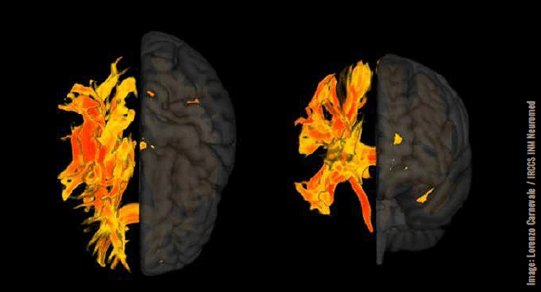 More than a billion adults around
the world live with elevated blood
pressure, a condition that puts individuals
at risk of damaging a variety of
organs, including the nervous system.
Though previous studies have linked
high blood pressure (hypertension)
with an increased risk of cognitive impairment,
the mechanisms behind the
decline in mental health has never been
known. Now an international team of
researchers has discovered which areas
of the brain are most likely to suffer
damage as the cardiovascular system is
put under strain.
“Our study has, for the first time,
identified specific places in the brain
that are potentially causally associated
with high blood pressure and cognitive
impairment,” says Jagiellonian University Medical College medical
biologist Mateusz Siedlinski. Siedlinski
and colleagues used a combination of
genetic and imaging data and observational
analyses from 33,000 individual
records in the UK Biobank to find the
damage caused by high blood pressure
that contributes to dementia. This
combined approach allowed the researchers
to identify where in the brain
long-term hypertension can cause the
structural changes that lead to declines
in cognitive function, and what those
changes look like in brain scan images.
“We thought these areas might be
where high blood pressure affects
cognitive function, such as memory
loss, thinking skills ...
Read full text
More than a billion adults around
the world live with elevated blood
pressure, a condition that puts individuals
at risk of damaging a variety of
organs, including the nervous system.
Though previous studies have linked
high blood pressure (hypertension)
with an increased risk of cognitive impairment,
the mechanisms behind the
decline in mental health has never been
known. Now an international team of
researchers has discovered which areas
of the brain are most likely to suffer
damage as the cardiovascular system is
put under strain.
“Our study has, for the first time,
identified specific places in the brain
that are potentially causally associated
with high blood pressure and cognitive
impairment,” says Jagiellonian University Medical College medical
biologist Mateusz Siedlinski. Siedlinski
and colleagues used a combination of
genetic and imaging data and observational
analyses from 33,000 individual
records in the UK Biobank to find the
damage caused by high blood pressure
that contributes to dementia. This
combined approach allowed the researchers
to identify where in the brain
long-term hypertension can cause the
structural changes that lead to declines
in cognitive function, and what those
changes look like in brain scan images.
“We thought these areas might be
where high blood pressure affects
cognitive function, such as memory
loss, thinking skills ...
Read full text
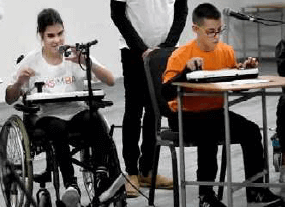 Boaz Rienshrieber advertised his
music classes with flyers stating
that “anyone can play.” Six years ago,
he was approached by a prospective
student who wanted to play guitar, but
her cerebral palsy severely inhibited her
ability to even hold the instrument.
He wanted to give her access to
something more expressive than the
shakers and peripheral percussion
instruments that students with cerebral
palsy are often relegated to. After doing
some searching, Rienshrieber put together
a development team to construct
an instrument perfectly tailored to her
physical abilities —and that’s how
the accessibility-focused instrument
Arcana Strum was born.
The Arcana Strum’s design is based
on the controls of a motorized wheelchair.
In its simplest form, the instrument
is intended to be placed on a table
or the musician’s lap, and is played by
a combination of large, color-coded
buttons and a lever used to strum. ...
Read full text:
Boaz Rienshrieber advertised his
music classes with flyers stating
that “anyone can play.” Six years ago,
he was approached by a prospective
student who wanted to play guitar, but
her cerebral palsy severely inhibited her
ability to even hold the instrument.
He wanted to give her access to
something more expressive than the
shakers and peripheral percussion
instruments that students with cerebral
palsy are often relegated to. After doing
some searching, Rienshrieber put together
a development team to construct
an instrument perfectly tailored to her
physical abilities —and that’s how
the accessibility-focused instrument
Arcana Strum was born.
The Arcana Strum’s design is based
on the controls of a motorized wheelchair.
In its simplest form, the instrument
is intended to be placed on a table
or the musician’s lap, and is played by
a combination of large, color-coded
buttons and a lever used to strum. ...
Read full text:
 Natura Futura and architect Juan Carlos
Bamba design ‘Las Tejedoras’,
a Community Productive Development
Center, utilizing architecture as a tool
for the insertion, linkage, and support
of women weavers. The project seeks
to be a space for the intermediation of
productive development processes, linking
unemployed women through active
participation, the potentiation of local
artisan techniques, and the revitalization
of learning as an empowerment tool.
‘Las Tejedoras’ is located on the
outskirts of the urban community of
Chongón, Ecuador, with a population
of approximately 4,900 people, where
the majority are women who are not part of the economically active groups,
with little possibility of entering a labor
niche. Since 2009, the Young Living
Foundation, dedicated to generating
programs that promote the potential
of communities through education and
entrepreneurship, opened the Young
Living Academy where around 150 lowincome
children study, whose mothers
are part of the local productive workshops,
thus forming the Organization
of Bromelias Artisan Women, focused
on development through handmade
fabrics with natural fibers. ...
Read full text
Natura Futura and architect Juan Carlos
Bamba design ‘Las Tejedoras’,
a Community Productive Development
Center, utilizing architecture as a tool
for the insertion, linkage, and support
of women weavers. The project seeks
to be a space for the intermediation of
productive development processes, linking
unemployed women through active
participation, the potentiation of local
artisan techniques, and the revitalization
of learning as an empowerment tool.
‘Las Tejedoras’ is located on the
outskirts of the urban community of
Chongón, Ecuador, with a population
of approximately 4,900 people, where
the majority are women who are not part of the economically active groups,
with little possibility of entering a labor
niche. Since 2009, the Young Living
Foundation, dedicated to generating
programs that promote the potential
of communities through education and
entrepreneurship, opened the Young
Living Academy where around 150 lowincome
children study, whose mothers
are part of the local productive workshops,
thus forming the Organization
of Bromelias Artisan Women, focused
on development through handmade
fabrics with natural fibers. ...
Read full text
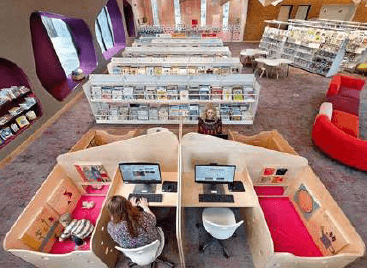 At the Henrico County Public Library,
where Barbara F. Weedman is the
director, she saw parents and caregivers
would struggle to use the computers
while balancing a baby on their lap or
keeping track of a busy toddler.
In 2017, when the library started
building a new location, Weedman had
an idea for work-play stations that
would give parents computer access
and a safe place to contain their baby
or child. She worked with the community
and a design group to bring the
idea to life, and when the Fairfield Area
Library opened in 2019, the Computer
Work and Play Stations were ready.
The Fairfield Area Library serves a
predominantly Black neighborhood
with many intergenerational homes.
These caregivers may not have internet
access at home, or they may just need
a quiet place away from home to get a
little work done,” Weedman says. ...
Read full text
At the Henrico County Public Library,
where Barbara F. Weedman is the
director, she saw parents and caregivers
would struggle to use the computers
while balancing a baby on their lap or
keeping track of a busy toddler.
In 2017, when the library started
building a new location, Weedman had
an idea for work-play stations that
would give parents computer access
and a safe place to contain their baby
or child. She worked with the community
and a design group to bring the
idea to life, and when the Fairfield Area
Library opened in 2019, the Computer
Work and Play Stations were ready.
The Fairfield Area Library serves a
predominantly Black neighborhood
with many intergenerational homes.
These caregivers may not have internet
access at home, or they may just need
a quiet place away from home to get a
little work done,” Weedman says. ...
Read full text
 How microbes in the gut influence
the brain —and vice versa— is still
being unpicked. Studies have revealed
possible routes of communication that
include the immune system, branches of
the vagus nerve that run from the gut to
the brain, and interaction with the nerves
and synapses that control the function
of the gastrointestinal tract. If the links
could be understood, and harnessed, experts
say the impact could be profound.
Scientists hope that by shifting the composition
of microbes in the gut, either
by administering particular microbes or
helping beneficial microbes to thrive,
they may be able to help treat disorders
such as anxiety and depression —an approach
known as psychobiotics. ...
Early small studies, some industry
funded, found that consumption
of probiotics —good bacteria such as
bifidobacteria and lactobacilli— might
reduce psychological distress and even
affect brain activity in regions involved
in controlling the processing of emotion
and sensation.
One study found that taking a probiotic
was associated with a reduction in
negative mood. Another found that administering
Bifidobacterium longum to
patients with irritable bowel syndrome
reduced depression ...
Certainly the science suggests that
manipulating the gut microbiome
involves more than simply swallowing
a dose of good bacteria. “The diversity
of your diet leads the diversity of your
gut ...
Read full text:
How microbes in the gut influence
the brain —and vice versa— is still
being unpicked. Studies have revealed
possible routes of communication that
include the immune system, branches of
the vagus nerve that run from the gut to
the brain, and interaction with the nerves
and synapses that control the function
of the gastrointestinal tract. If the links
could be understood, and harnessed, experts
say the impact could be profound.
Scientists hope that by shifting the composition
of microbes in the gut, either
by administering particular microbes or
helping beneficial microbes to thrive,
they may be able to help treat disorders
such as anxiety and depression —an approach
known as psychobiotics. ...
Early small studies, some industry
funded, found that consumption
of probiotics —good bacteria such as
bifidobacteria and lactobacilli— might
reduce psychological distress and even
affect brain activity in regions involved
in controlling the processing of emotion
and sensation.
One study found that taking a probiotic
was associated with a reduction in
negative mood. Another found that administering
Bifidobacterium longum to
patients with irritable bowel syndrome
reduced depression ...
Certainly the science suggests that
manipulating the gut microbiome
involves more than simply swallowing
a dose of good bacteria. “The diversity
of your diet leads the diversity of your
gut ...
Read full text:
 The human brain, we have learned,
adjusts and recalibrates temporal
perception. Our ability to encode
and decode sequential information,
to integrate and segregate simultaneous
signals, is fundamental to human
survival. It allows us to find our place
in, and navigate, our physical world. But
music also demonstrates that time perception
is inherently subjective —and
an integral part of our lives. “For the
time element in music is single,” wrote
Thomas Mann in his novel, The Magic
Mountain. “Into a section of mortal time
music pours itself, thereby inexpressibly
enhancing and ennobling what it fills.”
We conceive of time as a continuum,
but we perceive it in discretized units
—or as discretized units. It has long
been held that, just as objective time is dictated by clocks, subjective time (barring
external influences) aligns to physiological
metronomes. Music creates discrete
temporal units but ones that do not
typically align with the discrete temporal
units in which we measure time. Rather,
music embodies (or, rather, is embodied
within) a separate, quasi-independent
concept of time, able to distort or negate
“clock-time.” This other time creates
a parallel temporal world in which we
are prone to lose ourselves, or at least to
lose all semblance of objective time.
In recent years, numerous studies
have shown how music hijacks
our relationship with everyday time.
For instance, more drinks are sold in
bars when with slow-tempo music,
which seems ...
Read full text:
The human brain, we have learned,
adjusts and recalibrates temporal
perception. Our ability to encode
and decode sequential information,
to integrate and segregate simultaneous
signals, is fundamental to human
survival. It allows us to find our place
in, and navigate, our physical world. But
music also demonstrates that time perception
is inherently subjective —and
an integral part of our lives. “For the
time element in music is single,” wrote
Thomas Mann in his novel, The Magic
Mountain. “Into a section of mortal time
music pours itself, thereby inexpressibly
enhancing and ennobling what it fills.”
We conceive of time as a continuum,
but we perceive it in discretized units
—or as discretized units. It has long
been held that, just as objective time is dictated by clocks, subjective time (barring
external influences) aligns to physiological
metronomes. Music creates discrete
temporal units but ones that do not
typically align with the discrete temporal
units in which we measure time. Rather,
music embodies (or, rather, is embodied
within) a separate, quasi-independent
concept of time, able to distort or negate
“clock-time.” This other time creates
a parallel temporal world in which we
are prone to lose ourselves, or at least to
lose all semblance of objective time.
In recent years, numerous studies
have shown how music hijacks
our relationship with everyday time.
For instance, more drinks are sold in
bars when with slow-tempo music,
which seems ...
Read full text:
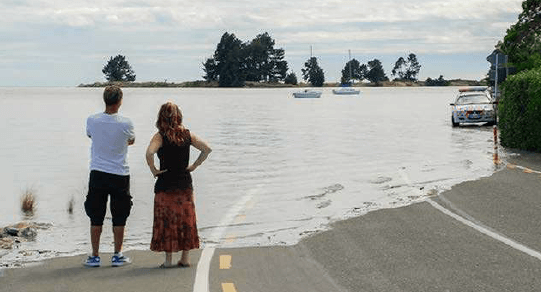 There is a misconception that the
ocean behaves like a bathtub. There
are two major reasons why sea levels are
rising. One is that the ocean is warming,
and it needs more space and expands.
The other one is that ice sheets and
glaciers are melting, and they put more
mass into the ocean. But if we look locally,
there are a lot of factors that lead
to regionally varying sea level rise.
We have changes in ocean circulation.
In the simplest form, winds over the
ocean push water masses from one side
to the other. That can lead to changes in
sea level over several years to decades.
The same is true for ocean currents.
If we put water into the ocean by ice
sheets or glaciers that are melting, their
gravitational field is also changed. Here,
there are three things that happen: You
put mass into the ocean, so sea levels
rise globally on average. But then, the
ice sheet is a heavy body of mass, and
due to its mass, it attracts the water of
the surrounding ocean, like the moon
generates tides. So as that ice sheet
melts you reduce that gravitational
attraction, and the water migrates
away from the ice sheet. And then at
the same time, the weight of the ice
sheet also becomes less, and it leads to
uplift of the ground below. So it leads
to sea level fall near the ice sheets but
sea level rise in what we call far-field
—like here in Louisiana, for instance.
Then, lastly, in particular here in
Louisiana, it’s not only the ocean that
is rising, but it’s also the land that
is sinking. ...
There is a misconception that the
ocean behaves like a bathtub. There
are two major reasons why sea levels are
rising. One is that the ocean is warming,
and it needs more space and expands.
The other one is that ice sheets and
glaciers are melting, and they put more
mass into the ocean. But if we look locally,
there are a lot of factors that lead
to regionally varying sea level rise.
We have changes in ocean circulation.
In the simplest form, winds over the
ocean push water masses from one side
to the other. That can lead to changes in
sea level over several years to decades.
The same is true for ocean currents.
If we put water into the ocean by ice
sheets or glaciers that are melting, their
gravitational field is also changed. Here,
there are three things that happen: You
put mass into the ocean, so sea levels
rise globally on average. But then, the
ice sheet is a heavy body of mass, and
due to its mass, it attracts the water of
the surrounding ocean, like the moon
generates tides. So as that ice sheet
melts you reduce that gravitational
attraction, and the water migrates
away from the ice sheet. And then at
the same time, the weight of the ice
sheet also becomes less, and it leads to
uplift of the ground below. So it leads
to sea level fall near the ice sheets but
sea level rise in what we call far-field
—like here in Louisiana, for instance.
Then, lastly, in particular here in
Louisiana, it’s not only the ocean that
is rising, but it’s also the land that
is sinking. ...
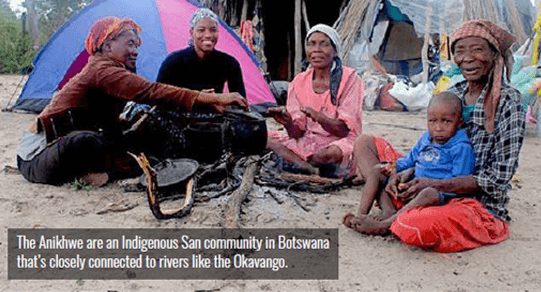 The COP15 agreement and its pledge
to preserve 30% of the world’s
biodiversity by 2030 (30×30) may have
sounded like a resounding success for
conservation around the world. However,
according to the Rainforest Foundation,
this could potentially impact up to
300 million people across the world.
Protecting our planet’s wildlife is a
crucial defense against the biodiversity
crisis. Depending on the context, restricting
access to vulnerable ecosystems
is crucial for preserving endangered
species. However, if our means
of doing so is by rehashing conservation
methods that ignore Indigenous
knowledge and needs, then COP15’s
30×30 push could produce far more
harm than good.
Today, we need to fuse international, modern ecological understanding with
local knowledge and the traditional
conservation methods that come with
it. That’s why it is crucial for local
representatives to be given both a
voice and representation at international
conservation conferences, and
at the private conservation funding
meetings where conservation land
demarcation is decided.
Research shows that while the
world’s 370 million Indigenous
peoples make up less than 5% of
the world’s total human population,
they manage over 25% of the world’s
land surface, and support 80% of the
world’s biodiversity. ...
Read full text:
The COP15 agreement and its pledge
to preserve 30% of the world’s
biodiversity by 2030 (30×30) may have
sounded like a resounding success for
conservation around the world. However,
according to the Rainforest Foundation,
this could potentially impact up to
300 million people across the world.
Protecting our planet’s wildlife is a
crucial defense against the biodiversity
crisis. Depending on the context, restricting
access to vulnerable ecosystems
is crucial for preserving endangered
species. However, if our means
of doing so is by rehashing conservation
methods that ignore Indigenous
knowledge and needs, then COP15’s
30×30 push could produce far more
harm than good.
Today, we need to fuse international, modern ecological understanding with
local knowledge and the traditional
conservation methods that come with
it. That’s why it is crucial for local
representatives to be given both a
voice and representation at international
conservation conferences, and
at the private conservation funding
meetings where conservation land
demarcation is decided.
Research shows that while the
world’s 370 million Indigenous
peoples make up less than 5% of
the world’s total human population,
they manage over 25% of the world’s
land surface, and support 80% of the
world’s biodiversity. ...
Read full text:
 New surveillance video from inside
an Indiana jail shows how
a 29-year-old man who died in the
summer of 2021 from dehydration and
malnutrition was left naked in solitary
confinement for three weeks with no
medical attention.
The footage was released on Wednesday
[April 12th] by the family of Joshua
McLemore as part of a federal civil
rights lawsuit against Jackson county,
Indiana. The suit accuses the local sheriff,
jail commander and medical staff
of causing McLemore’s death through
deliberate indifference, neglect and
unconstitutional jail conditions while he
was in a state of psychosis.
Disturbing videos, some of which
were reviewed by the Guardian, show
McLemore as he was left in a small,
windowless cell for 20 days straight in Jackson county jail in July and August
of 2021. The cell had no bed or bathroom
and had fluorescent lights on at
all hours.
In the footage, McLemore, who was
diagnosed with schizophrenia, appears
detached from reality, speaking gibberish,
rolling in filth and his own waste
and becoming clearly emaciated. He
received daily meals through a small
slot in his jail door, but appears to have
rarely eaten them. He had extended
human interactions on only four occasions
—when guards used intense force
and restraint devices to drag him out to
clean the cell or give him a shower.
McLemore ultimately lost 45lbs during
his stay, but never saw a doctor or
mental health professional ...
New surveillance video from inside
an Indiana jail shows how
a 29-year-old man who died in the
summer of 2021 from dehydration and
malnutrition was left naked in solitary
confinement for three weeks with no
medical attention.
The footage was released on Wednesday
[April 12th] by the family of Joshua
McLemore as part of a federal civil
rights lawsuit against Jackson county,
Indiana. The suit accuses the local sheriff,
jail commander and medical staff
of causing McLemore’s death through
deliberate indifference, neglect and
unconstitutional jail conditions while he
was in a state of psychosis.
Disturbing videos, some of which
were reviewed by the Guardian, show
McLemore as he was left in a small,
windowless cell for 20 days straight in Jackson county jail in July and August
of 2021. The cell had no bed or bathroom
and had fluorescent lights on at
all hours.
In the footage, McLemore, who was
diagnosed with schizophrenia, appears
detached from reality, speaking gibberish,
rolling in filth and his own waste
and becoming clearly emaciated. He
received daily meals through a small
slot in his jail door, but appears to have
rarely eaten them. He had extended
human interactions on only four occasions
—when guards used intense force
and restraint devices to drag him out to
clean the cell or give him a shower.
McLemore ultimately lost 45lbs during
his stay, but never saw a doctor or
mental health professional ...
 Let’s start from the beginning. After
1948, thousands of people from
Caribbean islands moved to the UK
—
named the “Windrush generation”
because many arrived on the ship HMT
Empire Windrush. They travelled to
the UK with the legal right to permanently
live and work there, but failure
one: the UK government never issued
them documentation so they could later
prove their lawful status in the UK.
In 2010, failure two: the UK government
destroyed the Windrush landing
cards that might have been used to
prove their lawful status. That year is
key to the story for another reason. It’s
when a new set of proposals emerged
—what the UK government eventually
called its “hostile environment policy.”
It established a set of requirements
designed to prevent access to services for anyone unable to prove their immigration
status. Its stated aim was to
make the requirements so difficult they
would push people to leave the country.
Thus, failure three: thousands of longterm,
lawful residents of the UK —mostly
Black Britons— suddenly found themselves
targets of an ill-conceived antiimmigrant
policy. ... The impacts were
devastating. People lost jobs, homes,
health care, pensions, and benefits. In
many cases, they were detained, deported,
and separated from their families.
Eventually, in 2018, the government
apologized for the scandal, and
in the following year, they opened the
Windrush Compensation Scheme. ...
Which brings us to today and failure
four: the compensation scheme itself
is failing ...
Let’s start from the beginning. After
1948, thousands of people from
Caribbean islands moved to the UK
—
named the “Windrush generation”
because many arrived on the ship HMT
Empire Windrush. They travelled to
the UK with the legal right to permanently
live and work there, but failure
one: the UK government never issued
them documentation so they could later
prove their lawful status in the UK.
In 2010, failure two: the UK government
destroyed the Windrush landing
cards that might have been used to
prove their lawful status. That year is
key to the story for another reason. It’s
when a new set of proposals emerged
—what the UK government eventually
called its “hostile environment policy.”
It established a set of requirements
designed to prevent access to services for anyone unable to prove their immigration
status. Its stated aim was to
make the requirements so difficult they
would push people to leave the country.
Thus, failure three: thousands of longterm,
lawful residents of the UK —mostly
Black Britons— suddenly found themselves
targets of an ill-conceived antiimmigrant
policy. ... The impacts were
devastating. People lost jobs, homes,
health care, pensions, and benefits. In
many cases, they were detained, deported,
and separated from their families.
Eventually, in 2018, the government
apologized for the scandal, and
in the following year, they opened the
Windrush Compensation Scheme. ...
Which brings us to today and failure
four: the compensation scheme itself
is failing ...
 Organizations in Wisconsin are
asking for the public’s help after a
weather phenomenon is causing loons
to fall out of the sky. According to the
Raptor Education Group, Inc., there
have been multiple calls [April 21st]
about loons on land and small ponds.
The group says it appears there is a
loon fallout happening.
A loon fallout happens when atmospheric
conditions cause migrating
loons to develop ice on their body as
they fly at high altitudes. This then
causes the loons to crash land because
they are not able to fly due to the
weight of ice on their body. The ice also
can interfere with the loon’s flight ability.
Experts say that the current ice/rain
and unstable air currents are a perfect
set-up for this phenomenon to happen. Loons are not able to walk, which is
why groups are asking for residents to
help. Anyone who comes across a loon
on land is asked to call REGI, Loon
Rescue or their local wildlife center for
advice. Officials pleaded to not take
loons to small ponds for release, they
reportedly need a quarter mile or more
of open water to run across and get
airborne. Loons also have sharp beaks
and use said beaks for defense. Officials
said you can cover them with a blanket
to contain them. When it comes to
transporting, officials say you can use a
Rubbermaid container with air holes in
the top. Towels should be placed at the
bottom of the container or box to help
prevent injury. ...
Organizations in Wisconsin are
asking for the public’s help after a
weather phenomenon is causing loons
to fall out of the sky. According to the
Raptor Education Group, Inc., there
have been multiple calls [April 21st]
about loons on land and small ponds.
The group says it appears there is a
loon fallout happening.
A loon fallout happens when atmospheric
conditions cause migrating
loons to develop ice on their body as
they fly at high altitudes. This then
causes the loons to crash land because
they are not able to fly due to the
weight of ice on their body. The ice also
can interfere with the loon’s flight ability.
Experts say that the current ice/rain
and unstable air currents are a perfect
set-up for this phenomenon to happen. Loons are not able to walk, which is
why groups are asking for residents to
help. Anyone who comes across a loon
on land is asked to call REGI, Loon
Rescue or their local wildlife center for
advice. Officials pleaded to not take
loons to small ponds for release, they
reportedly need a quarter mile or more
of open water to run across and get
airborne. Loons also have sharp beaks
and use said beaks for defense. Officials
said you can cover them with a blanket
to contain them. When it comes to
transporting, officials say you can use a
Rubbermaid container with air holes in
the top. Towels should be placed at the
bottom of the container or box to help
prevent injury. ...
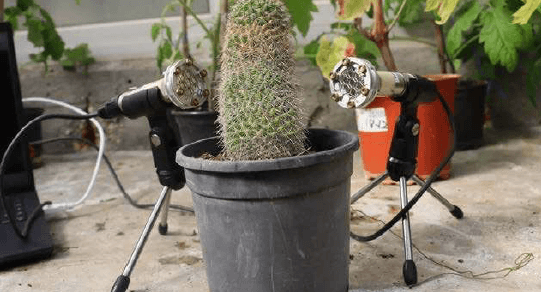 For the first time in the world,
researchers at Tel Aviv University
recorded and analyzed sounds distinctly
emitted by plants. The clicklike
sounds, similar to the popping
of popcorn, are emitted at a volume
similar to human speech, but at high
frequencies, beyond the hearing range
of the human ear.
The researchers: “We found that
plants usually emit sounds when they
are under stress, and that each plant
and each type of stress is associated
with a specific identifiable sound.
While imperceptible to the human ear,
the sounds emitted by plants can probably
be heard by various animals, such
as bats, mice, and insects.”
The study was led by Prof. Lilach Hadany,
together with Prof. Yossi Yovel, and research students Itzhak Khait and
Ohad Lewin-Epstein, in collaboration
with other researchers at Tel Aviv University.
The paper was published in the
scientific journal Cell.
At the first stage of the study the
researchers placed plants in an acoustic
box in a quiet, isolated basement
with no background noise. Ultrasonic
microphones recording sounds
at frequencies of 20-250 kilohertz
(the maximum frequency detected by
a human adult is about 16 kilohertz)
were set up at a distance of about 10cm
from each plant. The study focused
mainly on tomato and tobacco plants,
but wheat, corn, cactus and henbit
were also recorded. ...
For the first time in the world,
researchers at Tel Aviv University
recorded and analyzed sounds distinctly
emitted by plants. The clicklike
sounds, similar to the popping
of popcorn, are emitted at a volume
similar to human speech, but at high
frequencies, beyond the hearing range
of the human ear.
The researchers: “We found that
plants usually emit sounds when they
are under stress, and that each plant
and each type of stress is associated
with a specific identifiable sound.
While imperceptible to the human ear,
the sounds emitted by plants can probably
be heard by various animals, such
as bats, mice, and insects.”
The study was led by Prof. Lilach Hadany,
together with Prof. Yossi Yovel, and research students Itzhak Khait and
Ohad Lewin-Epstein, in collaboration
with other researchers at Tel Aviv University.
The paper was published in the
scientific journal Cell.
At the first stage of the study the
researchers placed plants in an acoustic
box in a quiet, isolated basement
with no background noise. Ultrasonic
microphones recording sounds
at frequencies of 20-250 kilohertz
(the maximum frequency detected by
a human adult is about 16 kilohertz)
were set up at a distance of about 10cm
from each plant. The study focused
mainly on tomato and tobacco plants,
but wheat, corn, cactus and henbit
were also recorded. ...

 Adidas Solar Headphones
are constantly recharging themselves
with any and all available light,
whether natural or artificial. From the
app (available for iOS and Android),
you can view detailed charging data.
www.adidasheadphones.com
Adidas Solar Headphones
are constantly recharging themselves
with any and all available light,
whether natural or artificial. From the
app (available for iOS and Android),
you can view detailed charging data.
www.adidasheadphones.com
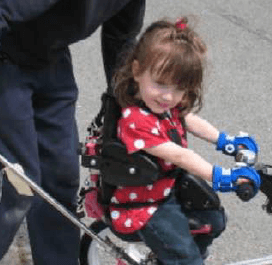 Medical conditions can
affect children’s grip or
hand function, from
Cerebral Palsy to Guillain-
Barré syndrome,
Muscular Dystrophy
to Spina Bifida, but
with our Mini aids
none of these need be
a bar to having fun!
www.activehands.com
Medical conditions can
affect children’s grip or
hand function, from
Cerebral Palsy to Guillain-
Barré syndrome,
Muscular Dystrophy
to Spina Bifida, but
with our Mini aids
none of these need be
a bar to having fun!
www.activehands.com

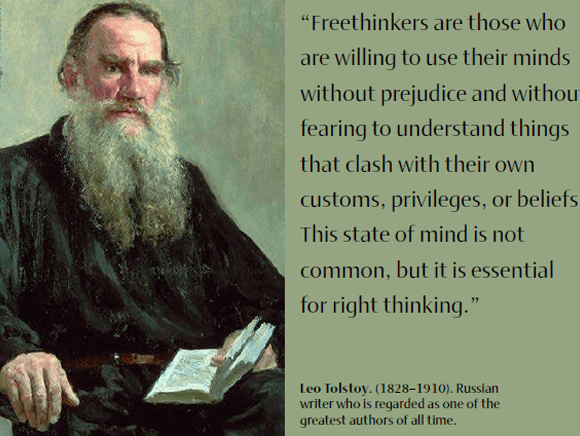 “Freethinkers are those who
are willing to use their minds
without prejudice and without
fearing to understand things
that clash with their own
customs, privileges, or beliefs.
This state of mind is not
common, but it is essential
for right thinking.”
“Freethinkers are those who
are willing to use their minds
without prejudice and without
fearing to understand things
that clash with their own
customs, privileges, or beliefs.
This state of mind is not
common, but it is essential
for right thinking.”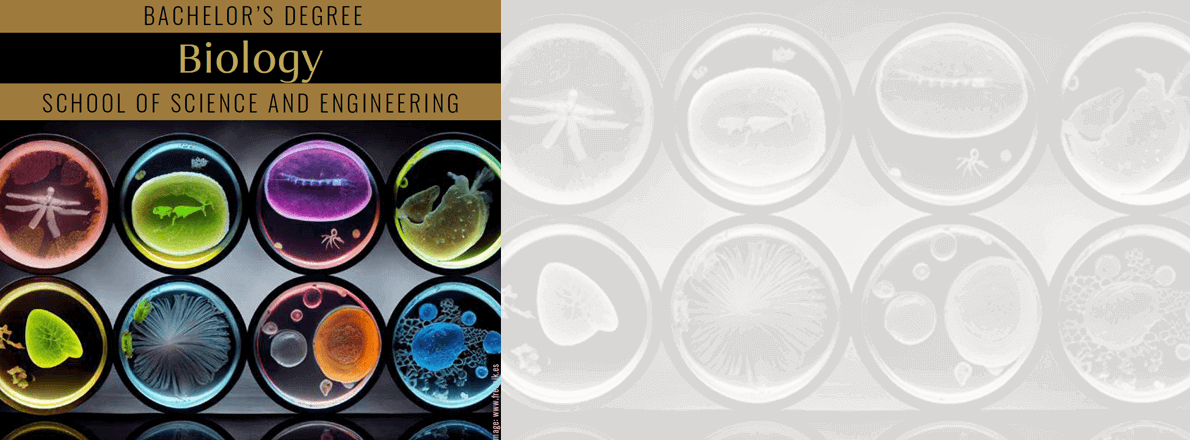 Biological sciences, the study of
living organisms and their relationship
to the environment, provide
a foundation for a variety of careers.
Some scientists conduct basic research
to increase the knowledge of living
organisms, while those in applied research
use this knowledge to develop
new medicines, increase crop yields
and improve the environment.
The Bachelor of Biology program is
offered online via distance learning.
After evaluating both academic record
and life experience, AIU staff working
in conjunction with Faculty and
Academic Advisors will assist students
in setting up a custom-made program,
designed on an individual basis. This
flexibility to meet student needs is
seldom found in other distance learning
programs. Our online program
does not require all students to take
the same subjects/courses, use the
same books, or learning materials. Instead,
the online Associate of Biology
curriculum is designed individually by
the student and academic advisor. It
specifically addresses strengths and
weaknesses with respect to market
opportunities in the student’s major
and intended field of work. Understanding
that industry and geographic
factors should influence the content
of the curriculum instead of a standardized
one-fits-all design is the
hallmark of AIU’s unique approach
to adult education. This philosophy
addresses the dynamic and constantly
changing environment of working
professionals by helping adult students
in reaching their professional
and personal goals within the scope of
the degree program.
Biological sciences, the study of
living organisms and their relationship
to the environment, provide
a foundation for a variety of careers.
Some scientists conduct basic research
to increase the knowledge of living
organisms, while those in applied research
use this knowledge to develop
new medicines, increase crop yields
and improve the environment.
The Bachelor of Biology program is
offered online via distance learning.
After evaluating both academic record
and life experience, AIU staff working
in conjunction with Faculty and
Academic Advisors will assist students
in setting up a custom-made program,
designed on an individual basis. This
flexibility to meet student needs is
seldom found in other distance learning
programs. Our online program
does not require all students to take
the same subjects/courses, use the
same books, or learning materials. Instead,
the online Associate of Biology
curriculum is designed individually by
the student and academic advisor. It
specifically addresses strengths and
weaknesses with respect to market
opportunities in the student’s major
and intended field of work. Understanding
that industry and geographic
factors should influence the content
of the curriculum instead of a standardized
one-fits-all design is the
hallmark of AIU’s unique approach
to adult education. This philosophy
addresses the dynamic and constantly
changing environment of working
professionals by helping adult students
in reaching their professional
and personal goals within the scope of
the degree program.
 Atlantic International University is accredited by the Accreditation Service for International
Schools, Colleges and Universities (ASIC). ASIC Accreditation is an internationally
renowned quality standard for colleges and universities. Visit ASIC’s Directory of Accredited
Colleges and Universities. ASIC is a member of CHEA International Quality Group
(CIQG) in the USA, an approved accreditation body by the Ministerial Department of the Home Office
in the UK, and is listed in the International Directory of the Council for Higher Education Accreditation
(CHEA). The University is based in the United States and was established by corporate charter in 1998.
Atlantic International University is accredited by the Accreditation Service for International
Schools, Colleges and Universities (ASIC). ASIC Accreditation is an internationally
renowned quality standard for colleges and universities. Visit ASIC’s Directory of Accredited
Colleges and Universities. ASIC is a member of CHEA International Quality Group
(CIQG) in the USA, an approved accreditation body by the Ministerial Department of the Home Office
in the UK, and is listed in the International Directory of the Council for Higher Education Accreditation
(CHEA). The University is based in the United States and was established by corporate charter in 1998.
 In some cases, accredited colleges
may not accept for transfer courses and degrees
completed at unaccredited colleges, and some
employers may require an accredited degree as
a basis for eligibility for employment. Potential
students should consider how the above may affect
their interests, AIU respects the unique rules and
regulations of each country and does not seek to
influence the respective authorities. In the event
that a prospective student wishes to carry out any
government review or process in regards to his
university degree, we recommend that the requirements
of such are explored in detail with the relevant
authorities by the prospective student as the
university does not intervene in such processes.
AIU students can be found in over 180 countries,
they actively participate and volunteer
in their communities as part of their academic
program and have allocated thousands of service
hours to diverse causes and initiatives. AIU
programs follow the standards commonly used by
colleges and universities in the United States with
regards to the following: academic program
structure, degree issued, transcript, and
other graduation documents.
AIU graduation documents can include
an apostille and authentication from the
US Department of State to facilitate their
use internationally.
In some cases, accredited colleges
may not accept for transfer courses and degrees
completed at unaccredited colleges, and some
employers may require an accredited degree as
a basis for eligibility for employment. Potential
students should consider how the above may affect
their interests, AIU respects the unique rules and
regulations of each country and does not seek to
influence the respective authorities. In the event
that a prospective student wishes to carry out any
government review or process in regards to his
university degree, we recommend that the requirements
of such are explored in detail with the relevant
authorities by the prospective student as the
university does not intervene in such processes.
AIU students can be found in over 180 countries,
they actively participate and volunteer
in their communities as part of their academic
program and have allocated thousands of service
hours to diverse causes and initiatives. AIU
programs follow the standards commonly used by
colleges and universities in the United States with
regards to the following: academic program
structure, degree issued, transcript, and
other graduation documents.
AIU graduation documents can include
an apostille and authentication from the
US Department of State to facilitate their
use internationally.
| Dr. Franklin Valcin Presi den t/Academic Dean |
Dr. José Mercado Chief Executive Officer Chairman of the Board of Trustees |
Ricardo González, PhD Provost |
| Dr. Ricardo Gonzalez Chief Operation Officer and MKT Director |
Linda Collazo Logistics Coordinator |
AIU Tutors Coordinators: Deborah Rodriguez Amiakhor Ejaeta Amanda Gutierrez William Mora Miriam James Admissions Coordinators: Amalia Aldrett Sandra Garcia Junko Shimizu Veronica Amuz Alba Ochoa Jenis Garcia Judith Brown Chris Soto René Cordón Dr. Anderas Rissler Academic Coordinators: Dr. Adesida Oluwafemi Dr. Emmanuel Gbagu Dr. Lucia Gorea Dr. Edgar Colon Dr. Mario Rios Freddy Frejus Dr. Nilani Ljunggren De Silva Dr. Scott Wilson Dr. Mohammad Shaidul Islam |
| Dr. Miriam Garibaldi Vice provost for Research |
Carolina Valdes Human Resource Coordinator |
|
| Dr. Ofelia Miller Director of AIU |
Carlos Aponte Teleco mmunications Coordinator |
|
| Clara Margalef Director of Special Projects of AIU |
David Jung Corporate/Legal Counsel |
|
| Juan Pablo Moreno Director of Operations |
Bruce Kim Advisor/Consultant |
|
| Paula Viera Director of Intelligence Systems |
Thomas Kim Corporate/ Accounting Counsel |
|
| Felipe Gomez Design Director / IT Supervisor |
Maricela Esparza Administrative Coordinator |
|
| Kevin Moll Web Designer |
Chris Benjamin IT and Hosting Support |
|
| Daritza Ysla IT Coordinator |
Maria Pastrana Accounting Coordinator |
|
| Daritza Ysla IT Coordinator |
Roberto Aldrett Communications Coordinator |
|
| Nadeem Awan Chief Programming Officer |
Giovanni Castillo IT Support |
|
| Dr. Edward Lambert Academic Director |
Antonella Fonseca Quality Control & Data Analysis |
|
| Dr. Ariadna Romero Advisor Coordinator |
Adrián Varela Graphic Design |
|
| Jhanzaib Awan Senior Programmer |
Vanesa D’Angelo Content Writer |
|
| Leonardo Salas Human Resource Manager |
Jaime Rotlewicz Dean of Admissions |
|
| Benjamin Joseph IT and Technology Support |
Michael Phillips Registrar’s Office |
|
| Rosie Perez Finance Coordinator |
||
 The School of Business and Economics
allows aspiring and practicing
professionals, managers, and entrepreneurs
in the private and public sectors
to complete a self paced distance
learning degree program of the highest
academic standard.
The ultimate goal is to empower
learners and help them take advantage
of the enormous array of resources
from the world environment in order
to eliminate the current continuum of
poverty and limitations.
Degree programs are designed for
those students whose professional experience has been in business,
marketing, administration, economics,
finance and management.
The School of Business and Economics
allows aspiring and practicing
professionals, managers, and entrepreneurs
in the private and public sectors
to complete a self paced distance
learning degree program of the highest
academic standard.
The ultimate goal is to empower
learners and help them take advantage
of the enormous array of resources
from the world environment in order
to eliminate the current continuum of
poverty and limitations.
Degree programs are designed for
those students whose professional experience has been in business,
marketing, administration, economics,
finance and management.
 The School of Social and Human Studies
is focused on to the development of
studies which instill a core commitment
to building a society based on social and
economic justice and enhancing opportunities
for human well being.
The founding principles lie on the
basic right of education as outlined
in the Declaration of Human Rights.
We instill in our students a sense of
confidence and self reliance in their
ability to access the vast opportunities
available through information channels,
the world wide web, private, public,
nonprofit, and nongovernmental organizations in an ever expanding
global community.
Degree programs are aimed towards
those whose professional life has been
related to social and human behavior,
with the arts, or with cultural studies.
The School of Social and Human Studies
is focused on to the development of
studies which instill a core commitment
to building a society based on social and
economic justice and enhancing opportunities
for human well being.
The founding principles lie on the
basic right of education as outlined
in the Declaration of Human Rights.
We instill in our students a sense of
confidence and self reliance in their
ability to access the vast opportunities
available through information channels,
the world wide web, private, public,
nonprofit, and nongovernmental organizations in an ever expanding
global community.
Degree programs are aimed towards
those whose professional life has been
related to social and human behavior,
with the arts, or with cultural studies.
 The School of Science and Engineering
seeks to provide dynamic, integrated,
and challenging degree programs
designed for those whose experience
is in industrial research, scientific production,
engineering and the general
sciences. Our system for research and
education will keep us apace with the
twenty-first century reach scientific
advance in an environmentally and
ecologically responsible manner to allow
for the sustainability of the human
population. We will foster among our
students a demand for ethical behavior,
an appreciation for diversity, an understanding
of scientific investigation, knowledge of design innovation, a
critical appreciation for the importance
of technology and technological change
for the advancement of humanity.
The School of Science and Engineering
seeks to provide dynamic, integrated,
and challenging degree programs
designed for those whose experience
is in industrial research, scientific production,
engineering and the general
sciences. Our system for research and
education will keep us apace with the
twenty-first century reach scientific
advance in an environmentally and
ecologically responsible manner to allow
for the sustainability of the human
population. We will foster among our
students a demand for ethical behavior,
an appreciation for diversity, an understanding
of scientific investigation, knowledge of design innovation, a
critical appreciation for the importance
of technology and technological change
for the advancement of humanity.
 With access to a global catalog created and maintained collectively by more than
9,000 participating institutions, AIU students have secured excellent research
tools for their study programs.
With access to a global catalog created and maintained collectively by more than
9,000 participating institutions, AIU students have secured excellent research
tools for their study programs.